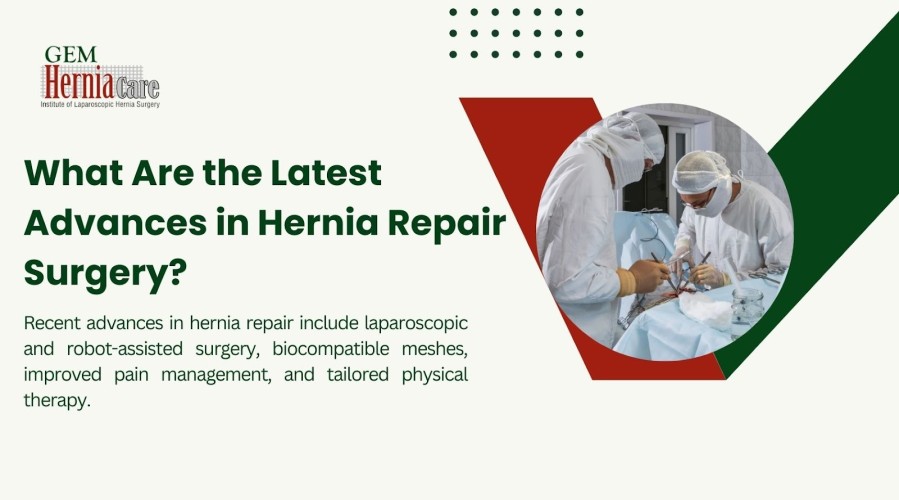Learn effective solutions for digestive problems with expert tips to improve gut health, reduce discomfort, and maintain a healthy digestive system.
What Are the Latest Advances in Hernia Repair Surgery

minute and help reduce patient discomfort and shorten hospital stays, thus making the Significant advancements have been made in the field of hernia repair surgery over recent years. Patients should keep themselves updated on these advances, as modern techniques may ensure them better results and a quicker return to their routine very soon after the surgery.
Advancement in the Art of Surgery
The hernia repair has changed a lot, particularly with the new surgical techniques, which minimized pain and hastened recovery times.
Laparoscopic Techniques: It is one of the minimally invasive approaches that has really changed the game of hernia repair. The incisions in laparoscopic surgery are procedure less frightening for the patients.
Robot-Assisted Surgery: Using robotic technology during hernia surgeries makes the operation much more accurate. Repairing a hernia using such sophisticated, robot-assisted technology allows for greater accuracy not only for the surgeon but also benefits the patients, who get a significant reduction in their recovery times.
New Materials in Hernia Mesh
With improved technology, the development of materials used in the repair of hernias, especially the meshes implanted to reinforce the damaged tissue, has advanced.
More recently, synthetic mesh materials have tried to be more biocompatible with the human body, reducing the possibility of rejection and infection.
Better Long-term Health Outcomes: These new materials are durable and ensure that the risk of hernia recurrence is markedly reduced, therefore providing better long-term health outcomes for the patients.
Post-Surgical Recovery and Care
Also, postoperative care has been advanced because it is part and parcel of recovery.
- Pain Management: New postoperative pain management strategies offer new ways for patients to recover better and be less dependent on opioids.
- Physical Therapy Protocols:
- Tailored physical therapy plans are crucial, helping patients regain strength and prevent future complications.
- Early mobilization encouraged under supervised care aids in a faster and safer recovery.
The most modern developments in hernia repair surgery offer more hope and better care for most people who suffer from common health issues. If this describes you or someone you know, then book an appointment at GEM Hospital to learn more about some of the new options available and get the best out of the latest developments for your specific scenario
Blogs & Article
Explore current research trends in digestive health, including new treatments, advanced diagnostics, and innovations improving gut health and patient care.
Discover common digestive health myths and the real facts. Learn simple tips to improve gut health and maintain better digestion for a healthier life.


